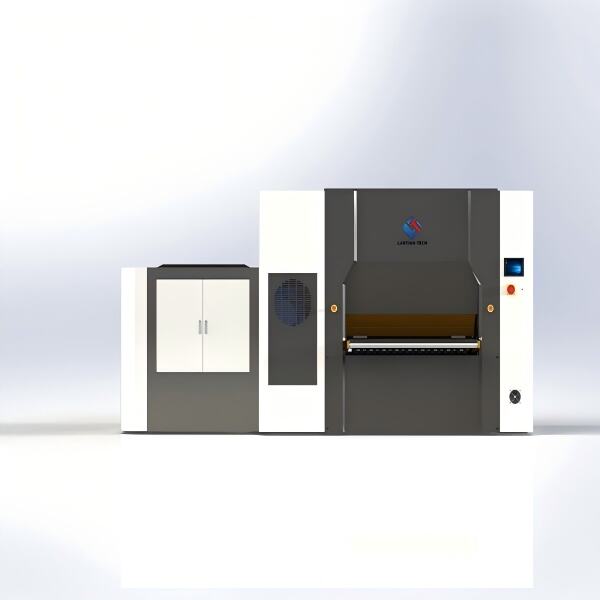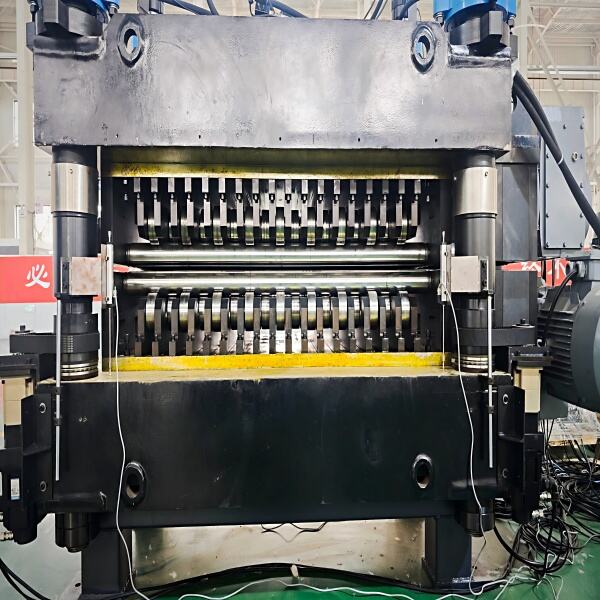The Role of Energy Efficiency in Servo Hydraulic Leveling Systems
In the industrial sector, energy efficiency is a growing priority, with companies looking for ways to reduce operational costs while maintaining or improving performance. Servo hydraulic leveling systems have emerged as one of the most energy-efficient solutions for various manufacturing processes. These systems combine advanced servo technology with hydraulic mechanisms to offer precise control and reduced energy consumption. Understanding the energy-saving benefits of servo hydraulic leveling systems is essential for making informed decisions that align with both sustainability goals and operational needs.
Energy Efficiency of Servo Hydraulic Leveling Systems
How Do Servo Hydraulic Leveling Systems Save Energy?
Servo hydraulic leveling systems offer significant energy-saving advantages by utilizing advanced servo motors that adjust power usage based on demand. Unlike traditional hydraulic systems that operate at full power continuously, servo-driven systems use variable speed drives and real-time adjustments to optimize energy consumption. This means that the machine only uses as much energy as is needed for the task at hand, eliminating unnecessary energy waste and significantly reducing operational costs.
In a conventional hydraulic system, the pump is constantly running at full speed, whether or not the machine requires the full amount of energy. This constant operation leads to higher energy consumption and more frequent maintenance. By contrast, servo hydraulic leveling systems only activate the pump when needed and adjust motor speed in response to real-time data, leading to a more efficient use of energy. This system ensures that energy is only consumed when required, optimizing the overall energy expenditure.
Reduced Heat Generation for Improved Efficiency
Another way servo hydraulic leveling systems contribute to energy savings is through reduced heat generation. Traditional hydraulic systems can produce a significant amount of heat due to constant pump activity. This not only increases energy consumption but also places additional strain on the machine’s cooling system. In contrast, servo hydraulic systems operate in a more controlled manner, generating less heat overall, which reduces the need for cooling and further enhances energy efficiency.
By minimizing heat generation, servo hydraulic systems also contribute to a longer lifespan for key components such as hydraulic pumps, motors, and seals. The reduced wear and tear on the system further decreases the frequency of maintenance and replacement costs, which can also be considered part of the overall energy-saving benefits. Therefore, the energy-efficient nature of these systems helps companies maintain equipment in optimal condition with lower operating costs.

Long-Term Energy Savings and Cost Reduction
Lower Operational Costs Through Energy Efficiency
The most obvious benefit of energy-efficient servo hydraulic leveling systems is the potential for significant cost savings. As energy costs continue to rise globally, industries that rely on heavy machinery can see their operational expenses soar without taking energy-saving measures. By adopting a servo hydraulic system, businesses can dramatically reduce their electricity consumption. This is especially true for large-scale manufacturing operations that rely on hydraulic systems for processing heavy materials.
Over time, the savings on energy bills can add up to substantial amounts. Many businesses find that the return on investment (ROI) for servo hydraulic systems is realized relatively quickly due to the drastic reduction in energy usage. While the initial investment may be higher than traditional systems, the long-term cost savings make the servo hydraulic leveling systems a highly cost-effective solution. By making the switch, companies can improve both their profitability and environmental footprint.
The Environmental Impact of Energy Savings
In addition to reducing operational costs, the energy-saving benefits of servo hydraulic leveling systems also extend to their environmental impact. With industries across the world under increasing pressure to reduce their carbon footprints and operate sustainably, energy efficiency is a key consideration in equipment selection. Servo hydraulic systems, by using less energy, contribute to lower carbon emissions, making them an environmentally friendly choice.
By consuming less electricity and reducing overall energy waste, these systems help businesses meet sustainability goals and align with green manufacturing practices. As companies face stricter environmental regulations and growing consumer demand for sustainability, investing in energy-efficient equipment becomes not only a cost-saving measure but also a key aspect of corporate responsibility. Servo hydraulic leveling systems support eco-friendly practices by cutting down on energy use and minimizing the environmental impact associated with traditional hydraulic systems.
Precision Control and Its Role in Energy Efficiency
Optimized Performance for Energy Conservation
One of the main reasons servo hydraulic leveling systems are so energy-efficient is their precise control mechanisms. Servo motors are highly responsive and can adjust to the exact needs of the task at hand. By providing finer control over the machine’s operation, these systems eliminate unnecessary movements and energy consumption. For example, when leveling materials, servo hydraulic systems adjust motor speed and hydraulic pressure to match the material’s thickness and rigidity, ensuring that only the necessary energy is used for each operation.
This precision is particularly important in industries where accuracy and speed are critical. By optimizing the power usage based on real-time requirements, servo hydraulic systems minimize wasted energy and improve overall machine performance. This not only leads to energy savings but also enhances the quality of the product being processed. With energy-efficient operation, businesses can achieve the required levels of precision without overusing power, making these systems ideal for both cost savings and production quality.
Reduced Need for Overpowering and Idle Time
Another important aspect of energy savings in servo hydraulic leveling systems is the reduction in idle time and overpowering. Traditional hydraulic systems often continue running at full capacity even when they are not actively performing a task. This results in unnecessary energy consumption and waste. In contrast, servo hydraulic systems are capable of adjusting to changes in workload, allowing the system to power down or reduce speed during idle periods.
This dynamic control of the system ensures that the machine operates only at the required capacity, even during fluctuations in production. When a machine is not actively in use, the servo hydraulic system can switch to a low-power mode or even shut down completely. This approach further minimizes energy consumption by reducing unnecessary idling and ensuring that the machine operates only when it is performing tasks. As a result, businesses can further reduce their overall energy usage, contributing to both lower costs and improved efficiency.
Maintenance and Longevity: The Benefits Beyond Energy Efficiency
Reduced Maintenance Costs Through Energy Savings
The energy-saving features of servo hydraulic leveling systems also contribute to lower maintenance costs. As these systems generate less heat and reduce wear on key components, they require less frequent maintenance than traditional hydraulic systems. Lower energy consumption means less strain on the system, extending the lifespan of critical components such as motors, pumps, and hydraulic seals.
In industries where downtime for maintenance can be costly, this reduced need for repairs and servicing is a significant advantage. Regular maintenance is still necessary, but with fewer wear-and-tear issues to address, the system’s overall maintenance costs are lower. Businesses benefit from reduced downtime, improved production efficiency, and lower repair costs. Additionally, the durability of these systems means that businesses can invest in long-term solutions without worrying about frequent equipment replacements.
Extended Lifespan of Equipment
Energy-efficient systems like the servo hydraulic leveling machine are built to last longer than traditional hydraulic systems. This longevity comes as a result of the system’s ability to operate at lower temperatures, produce less heat, and reduce the strain on hydraulic components. Over time, this reduction in thermal stress leads to a more durable machine that requires fewer repairs and replacements.
The extended lifespan of these machines makes them a worthwhile investment for businesses. Not only do companies save on energy costs, but they also benefit from having equipment that performs consistently over many years. The reduced frequency of repairs and replacements contributes to overall cost savings and boosts the long-term profitability of the investment. With minimal downtime and fewer maintenance needs, companies can continue to operate efficiently without having to replace machinery as often.
FAQ
How do servo hydraulic leveling systems save energy compared to traditional systems?
Servo hydraulic leveling systems use variable speed drives and precise control mechanisms to adjust power consumption based on real-time demands, significantly reducing energy waste compared to traditional systems, which run at full power constantly.
What is the impact of energy savings on operational costs?
Energy savings from servo hydraulic leveling systems can dramatically reduce operational costs, particularly in large-scale manufacturing environments. The energy-efficient operation allows businesses to lower their electricity bills, contributing to overall cost reduction.
Are servo hydraulic leveling systems environmentally friendly?
Yes, by reducing energy consumption and minimizing waste, servo hydraulic leveling systems contribute to lower carbon emissions, making them an environmentally friendly choice for industries looking to reduce their ecological footprint.
How does the energy efficiency of servo hydraulic systems affect maintenance?
The energy efficiency of servo hydraulic systems leads to reduced heat generation, less wear on components, and extended equipment life. This results in fewer maintenance needs and lower overall maintenance costs.

